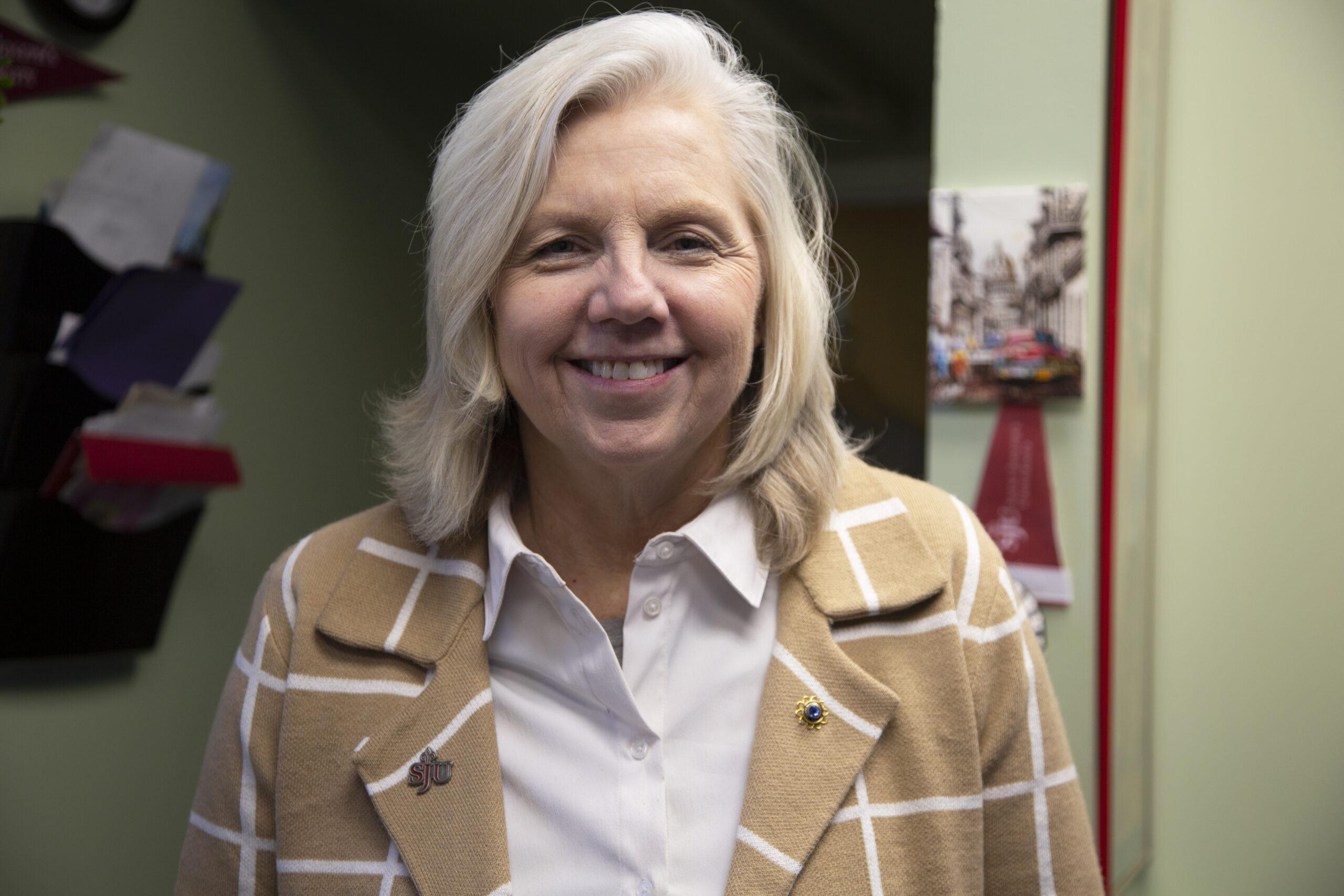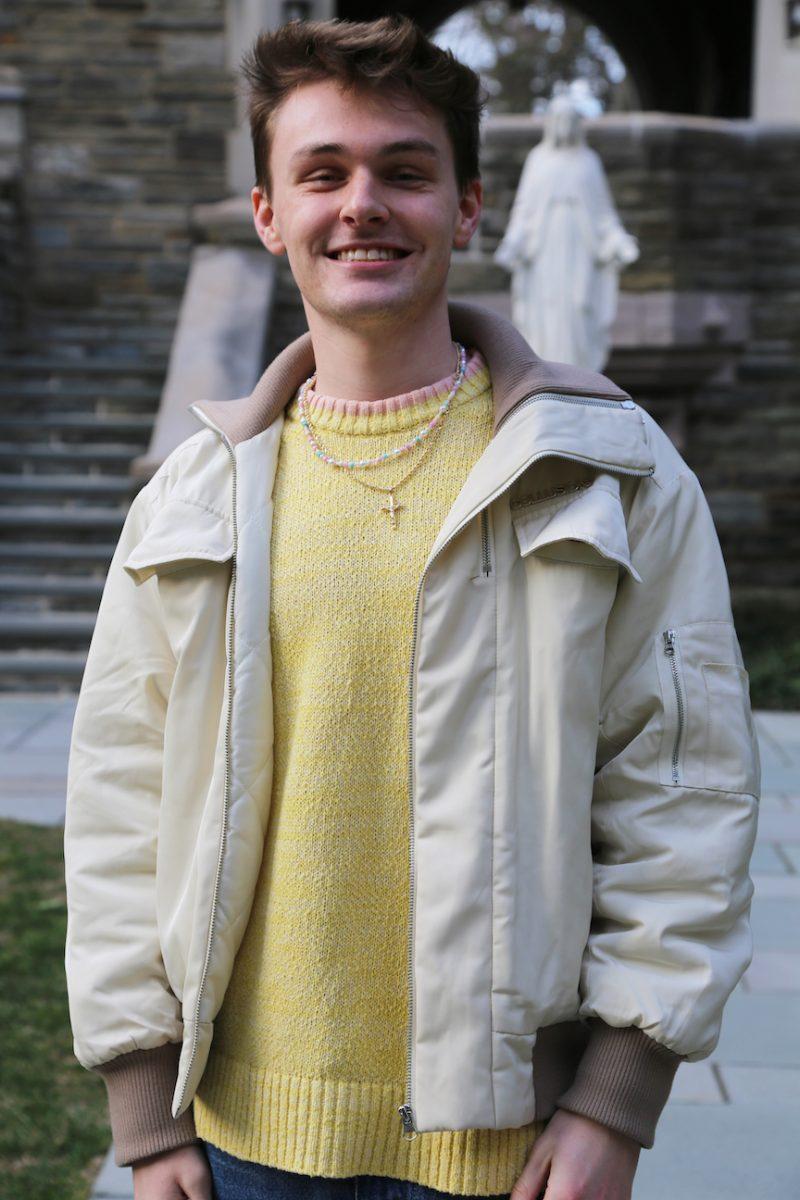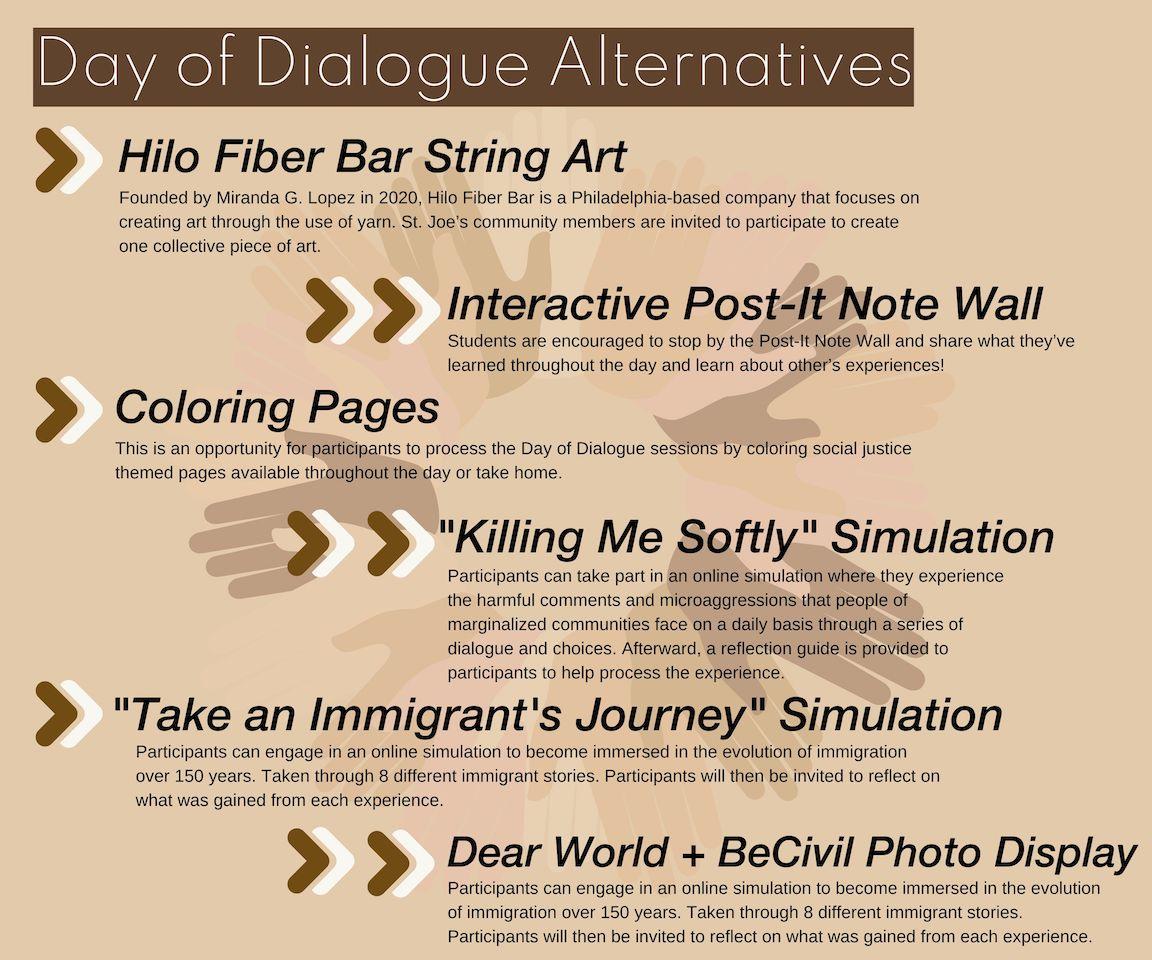Nancy Komada, Ph.D., is the director of the Office of Student Transitions. In this position, she helps first-generation, commuter and transfer students, as well as adult learners. Komada has been at St. Joe’s since 1991, holding a variety of roles in the Office of Student Life, but almost always working closely with non-traditional students. A native of Philadelphia herself, Komada is also a first-generation college student who eventually earned a doctorate from Temple University’s College of Education and Human Development.
The Hawk: What was your own experience of being a first-generation student?
Komada: I always felt I was sort of an imposter. When I was challenged in the classroom and college, it felt to me, everybody else was understanding how to navigate the college environment.
The Hawk: What made you realize that you wanted to work with other first-generation students?
Komada: I believe that education changes everything. So if you take a person in a family where no one in the family has gone to school before, and that student gets a degree, that forever changes the trajectory of the family and the community that person is a part of. … [College is] a world that’s closed off from people, but then when you share that world with them, they become part of it. But if you’re first-gen, you may never be a part of it because no one’s sharing that knowledge with you.
The Hawk: Are there any aspects that make your job difficult?
Komada: The most challenging thing, and I’ll speak for all of us, because we all feel this way in the Student Success Center, is that there are so many resources at St. Joe’s and so many people that care. If you have an unexpected death in your family or you’re depressed and can’t continue in school, we’re here for you. Faculty will raise a flag in the Starfish system, and if the student is one of the students I [am in charge of], it’ll come to me. I’ll reach out immediately to the student to help to find out what’s going on, and [if] the student doesn’t respond and then they find themselves in a downward spiral with five Fs at the end of the semester, that is so frustrating. We could talk about withdrawing from a class or something, but at the end of the day, if you don’t get back in touch with me, I can’t help you. And that’s the frustrating part because we feel so strongly about higher ed, and yet, I can’t do [your classes] for you.
The Hawk: How do you move past the difficulty to keep doing what you do?
Komada: I just had two alums from many years ago say, “You were the person that helped me get this degree.” So that keeps you going. That really keeps you focused on that goal, which is education.
The Hawk: What more do you wish you could do in helping these students such as first-generation, commuter or transfer students?
Komada: There’s just really so much to do. And there’s so many students. If there were more resources in terms of people resources, more people to help with the process… I would say more resources, more money and more people, that would be what would help things most.
The Hawk: A number of the eight students who participated in The Washington Center (TWC) program in January are commuter and first-gen students. What was the program? Why do you think this was such an important opportunity for these students?
Komada: It’s usually kind of like a study abroad semester except you’re in Washington D.C. But there was an opportunity this past winter break, January, that they had an eight-day immersion program with the TWC. There’s apartments there, and the students get to live in the apartments, they have a roommate, they’re with students from other schools. They also go to the Capitol for lectures and things like that, and that’s all facilitated through the TWC. …
I really tried to encourage them to do this because I know, for commuter students especially, it’s difficult if they have lots of responsibilities at home. Students are commuters for many reasons. Sometimes it’s finances, sometimes it’s that they maintain responsibilities at home like taking their brother to daycare, walking the dog at four o’clock or taking care of grandma. They often don’t get opportunities to be away. So when things are a week or two weeks, it’s a better introduction and more feasible for them to try this kind of thing out. It’s been a great experience for them to have them be on their own and be with each other and the other students from other schools.
Mackenzie Allen ’23 contributed to this story.











































